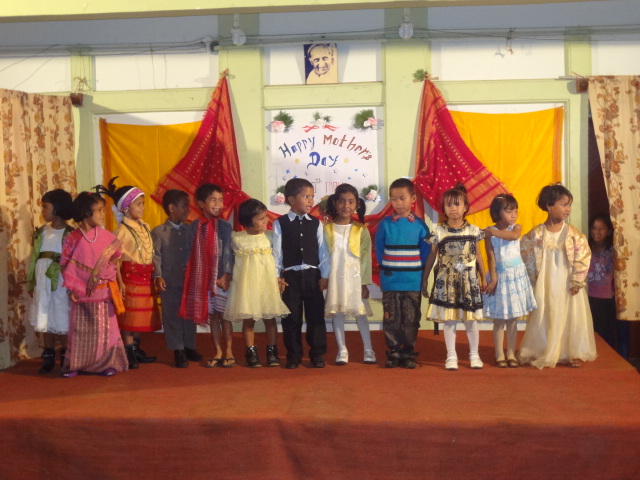Gender inequality makes girls vulnerable to abuse
.jpg?width=800)
Celebrating Mother's Day in the Village (photo: SOS archives).
Meghalaya State has not seen the same economic growth as other parts of the country. According to experts, this is partly due to its geographical position and the weak transport links to the area.
Most of the people in the region live off cattle rearing and agriculture, cultivating rice, potatoes and fruits. Mining is also important, as the area has many natural resources. Some of these mines are not legal; not only are there environmental concerns about the way they are managed, but they often also use child labour.
People living off agriculture are vulnerable because the productivity is low and the farming methods are not sustainable. The poverty rate in rural areas is higher than in urban areas, but in cities too, unemployment and poverty remain a problem. Women and children are the first to suffer the consequences of the high unemployment and poverty levels.
Gender inequality continues to be an issue. According to the most recent census, the average literacy rate in the state is 75.5 per cent, but there are differences between male literacy rates – at 77.2 per cent – and female literacy at 73.8 per cent. Although among the poorest children of both sexes are often taken out of school so that they can contribute to the family income, it is still common for girls to leave school earlier than boys. Human trafficking is also a problem in the area, as people fall for the false promises of traffickers. Women and girls are particularly vulnerable to abuse due to their weak position in society.
We work closely with local agencies
SOS Children's Villages in Shillong is situated outside the city centre, on a green hill covered with pine trees. The land was donated by the Government of Meghalaya. We continue to work closely with local agencies and community-based organisations in order to identify families who are in need and then provide them with the support they require to improve their lives.
What we do in Shillong
_1.jpg?width=800)
Children at SOS Village Shillong enjoy a picnic together (photo: SOS archives).
When children can no longer stay with their families, they can find a loving home with one of the twelve SOS families, where they grow up with their sisters and brothers. When needed, the SOS Kindergarten can provide day care for young children, while older ones attend the local schools. In both settings they make friends with children from neighbouring families and thus integrate into the community. We aim to give children in our care the support they need, be it tuition for their school work or therapy.
When the young adults are ready to leave their SOS families they can join our SOS Youth Programme. With the support of qualified professionals they are guided through this new stage of their lives, as they start vocational training courses, attend higher education and look for work. The young people are encouraged to develop perspectives for their future, learn to shoulder responsibility and increasingly make their own decisions.